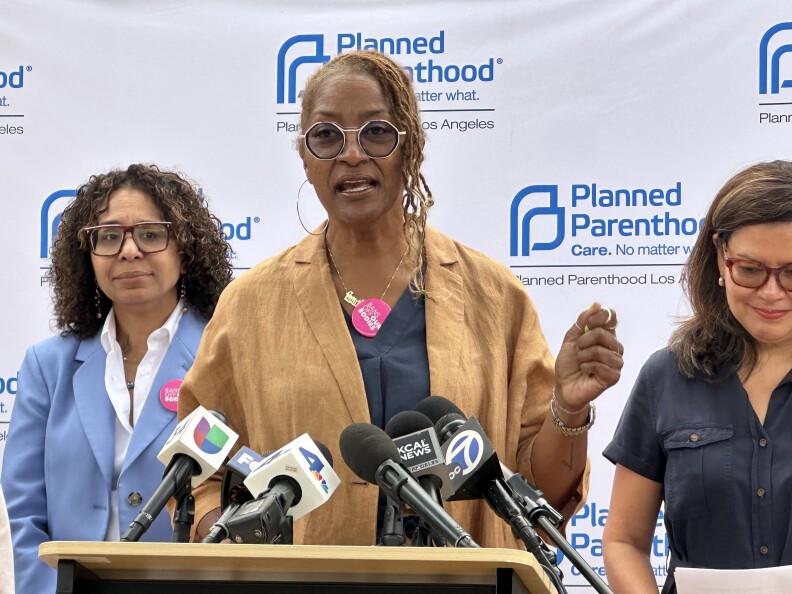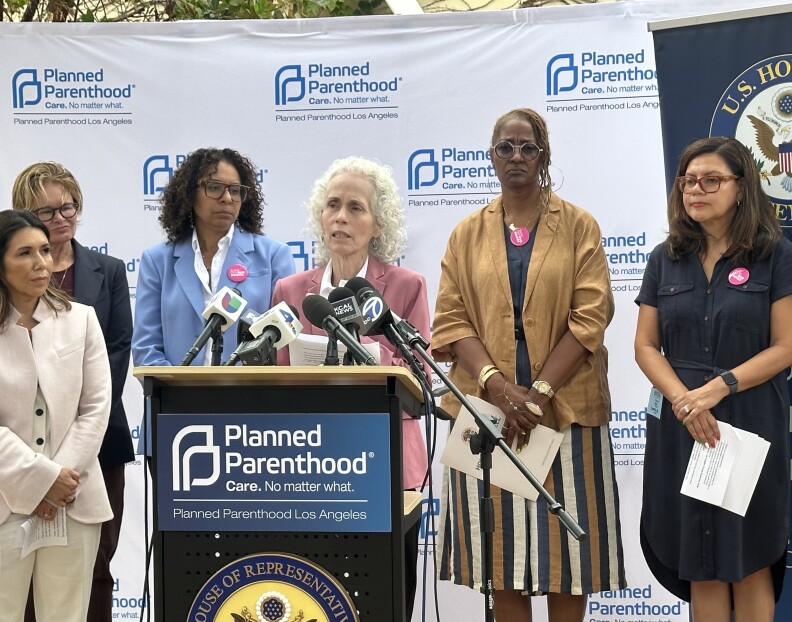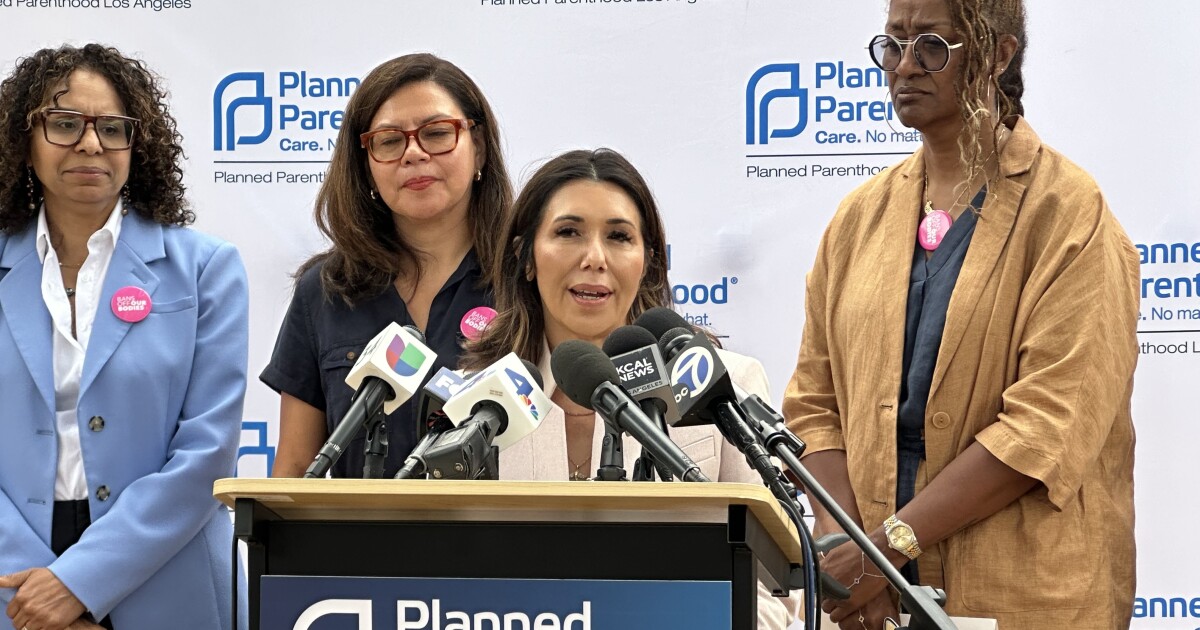Keep up with LAist.
If you’re enjoying this article, you’ll love our daily newsletter, The LA Report. Each weekday, catch up on the 5 most pressing stories to start your morning in 3 minutes or less.
Planned Parenthood leaders and local elected officials are warning that patients’ lives will be at risk if the federal government pulls Medicaid funding that provides healthcare access to thousands of Southern Californians.
Planned Parenthood serves more than 1.3 million patients across the state, more than 80% of whom are on Medicaid, known here as Medi-Cal.
The federal budget bill that went into effect July 4 — also known as President Donald Trump’s “Big Beautiful Bill” — prevents Planned Parenthood clinics from getting Medicaid reimbursement for reproductive health services such as cancer screenings, testing for sexually transmitted infections, prenatal care and birth control.
Federal law restricts clinics and hospitals from using federal funds to pay for most abortions, but they have used reimbursements to help provide other forms of healthcare to patients who rely on Medicaid or Medi-Cal.
A few days after the bill became law, a federal court issued a temporary restraining order that allowed Medicaid payments to Planned Parenthood to resume.
The order expired Monday.
Jodi Hicks, CEO of Planned Parenthood Affiliates in California, said at a Monday news conference that the block on reimbursements was aimed at states like California, where access to abortion is protected.
“ Politicians in Washington have imposed economic sanctions on a state like California because of our values,” she said.
She and others at the news conference said they remain committed to preserving reproductive care for Californians and will remain open for now.
”We’ll continue to fight back, and Planned Parenthood will continue to serve patients, because that’s what we do,” she said. “We’re here for good no matter what.”
What’s at stake
A Planned Parenthood spokesperson said clinics in California could lose a half billion dollars without Medi-Cal reimbursements.
Los Angeles County Supervisor Holly Mitchell said more than 850,000 residents in her district, which stretches from Culver City to Carson, rely on Medi-Cal.
“ People will die… That’s unequivocal,” Mitchell said.

Supervisor Holly Mitchell, whose district stretches from Culver City to Carson, represents over 850,000 residents who rely on Medi-Cal.
Despite the projected loss of federal funds, Planned Parenthood officials said they do not plan to reduce access to services. But they did not explain Monday how they would keep them going.
It’s also not yet clear whether some clinics would have to be closed.
“Shutting down health centers threatens the wellbeing of Black and Brown communities, low income families, and countless others who rely on Planned Parenthood as their only source of care,” Mitchell said. “ These kinds of services are literally life sustaining and lifesaving.”
Barbara Ferrer, director of the L.A. County Department of Public Health, said without Medi-Cal, people would likely delay treatment for medical issues until there’s an emergency.
“ When we shrink the capacity of Planned Parenthood to continue their work, we’re not just cutting benefits. We’re not just cutting budgets,” she said. “We’re cutting lives short.”

Dr. Barbara Ferrer spoke to the public health impacts of Medi-Cal cuts to Planned Parenthood. Leaders, as well as Representative Kamlager-Dove and Supervisor Mitchell stand behind her.
The status of the funding
When the federal budget bill passed on July 4, Planned Parenthood was immediately restricted from reimbursing expenses with Medicaid or Medi-Cal. Three days later, on July 7, a federal judge in Massachusetts issued a temporary court order that allowed the organization to continue receiving Medicaid funding.
That order lasted two weeks. It’s not yet clear whether it will be extended.
Right after the budget bill passed, clinics in L.A. County continued to provide care. But CEO Planned Parenthood of L.A. Sue Dunlap has said that’s unsustainable.
“ Our hope is that the restraining order lasts as long as possible and we’re able to keep our doors open,” Dunlap said.
